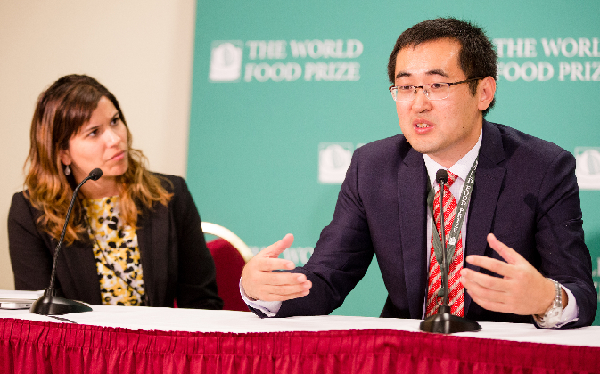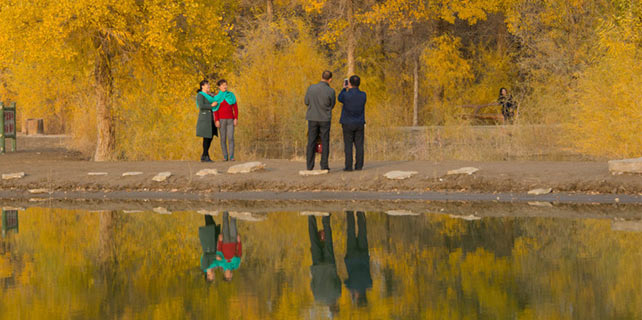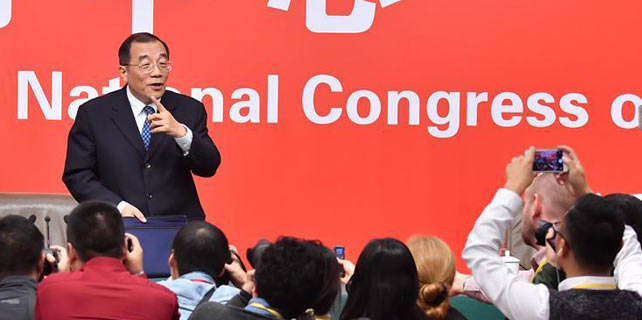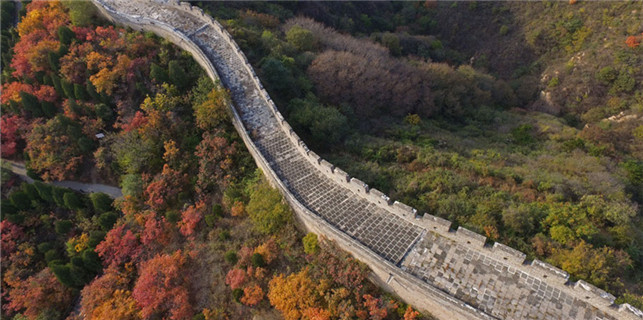Beijing scientist wins food award for work with soil
 |
|
Cui Zhenling (right) discusses his soil nitrogen management system at the World Food Prize in Des Moines, Iowa, on Wednesday. zhao li / china daily |
Cui Zhenling, a researcher and faculty member at China Agricultural University in Beijing, was awarded the Norman Borlaug Award for Field Research and Application at the World Food Prize awards ceremony in Des Moines, Iowa on Wednesday.
The prizes recognize individuals who increase the quality, quantity and availability of food on a global scale.
Cui was recognized for his scientific work in improving soil health and increasing crop production through innovative fertilizer management strategies. His work in China has led to improved nitrogen efficiency, resulting in higher maize and wheat yields and less soil degradation and water pollution.
The $10,000 Borlaug Award, endowed by the Rockefeller Foundation, was established in 2012 to recognize exceptional science-based achievement in international agriculture and food production by an individual under the age of 40.
"I was really happy and surprised when I first heard the news," Cui said from Des Moines. "I am very proud that my team and I have won this prestigious prize on the international stage."
Cui began his research in 2000, and has since published numerous papers in the journal Nature over the years.
"We figured out how to efficiently manage nitrogen fertilizer by 2010 to reduce usage and pollution," Cui said.
Through 269 on-farm experiments, Cui's system significantly reduced nitrogen fertilizer application by as much as 60 percent for wheat and 40 percent for corn.
In addition, nitrogen loss was reduced by 73 percent for wheat and 43 percent for the corn throughout their growing seasons.
Not satisfied with the 5 percent growth in yield this system produced, Cui pressed on with his experiments. By 2014, he had developed another system he called integrated soil-crop system management, which takes into account the density and type of crop.
"The yield increased by 20 percent under this approach," said Cui.
He estimated that in the past 10 years, the system has been applied to a cumulative 80 million acres of China farmland, greatly reducing soil degradation and water pollution.
The award is named for Dr Norman E. Borlaug who received the 1970 Nobel Peace Prize for his life's work driving a "Green Revolution" of improved agriculture in the developing world.
"Dr. Cui truly exemplifies those traits of dedication, hard work, and connecting closely to the farmers that were part of Dr Borlaug's life," said Ambassador Kenneth Quinn, president at the World Food Prize Foundation, on presenting the award.
"Dr. Borlaug felt great friendship toward China, first going to China in 1974. Now here we are, more than 40 years later, carrying on his legacy and building upon that the friendship between the US and China," Quinn added.
Consul General of China in Chicago Hong Lei said that the award was the result of years of Cui's efforts as well as his ideal of serving and working with farmers.
"The award represents a new development in agricultural exchanges between China and the US. I hope this will further such exchanges," Hong said.
Zhao Li in Des Moines contributed to this story.
mayzhou@chinadailyusa.com
















